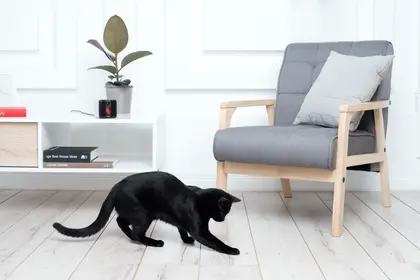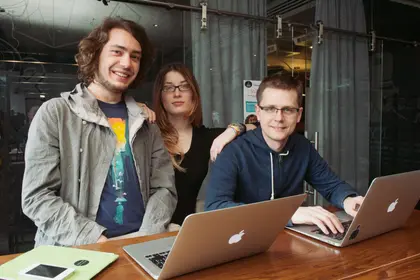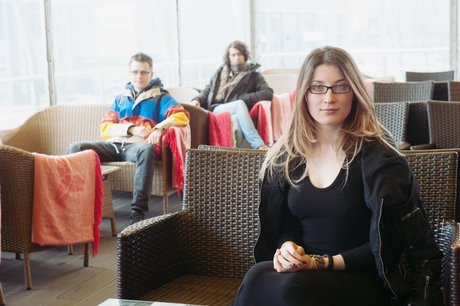Originally called Rich Site Summary, RSS readers essentially aggregate news from websites and put them in an easy-to-read format, such as a list or feed on a single website, where they can be read and shared. The idea is RSS services bring news to one site instead of the more time consuming practice of visiting separate sites.
The news of Google Reader’s retirement sent internet users into a frenzy last week. Within a day of the March 13th announcement more than 100,000 people had signed a petition launched on Change.org to keep the site running.
JOIN US ON TELEGRAM
Follow our coverage of the war on the @Kyivpost_official.
Google offered two simple reasons for
the decision: “Usage of Google Reader has declined, and as a company we are
pouring all of our energy into fewer products.”
The move even spawned the latest video in The Downfall meme, in which Hitler is dubbed shouting “Anyone who
thinks social media is a valid replacement for an RSS-reader, leave the room
now.”
The tech giant’s announcement has been good for some smaller players, like
Flipboard, Feedly and NewsBlur, which each saw thousands of users migrate to
their services.
It’s also been good for Bulygina’s The Old Reader.
The Old Reader
Upset by Google’s decision to pull the plug on Reader’s social and sharing features
back in November 2011, Bulygina, 26, turned to social media to fill the void.
“I had lots of friends (on Google
Reader), and we would all share stuff there that was important to us… and then there
was no substitute,” she says.

Top 6 Ukrainian products popular abroad
Bulygina, who is from Stakhaniv,
Luhansk Oblast but currently calls Dublin, Ireland home, says she and her
friends tried to replicate the online community they’d created on Google Reader
using Google+ and Facebook, but nothing felt right. For a while they waited for
a service called HiveMined to start up, but it never materialized.
Then, while traveling through Asia, she
got an idea.
A friend had asked her about links
to photography websites.
“So I went to my Google Reader and
started copying and pasting some links from my RSS batch, and I remembered how
good (the content aggregator) actually was,” Bulygina says.
Bulygina approached her friend Dmitry
Krasnoukhov, 21, with an idea for a reader that would have all the functions they
missed from the original Google Reader, including share and favorite buttons,
as well as an added feature called Pocket, which allows readers to save links
they want to view later.
Five weeks after they first
discussed the project Krasnoukhov had completed a beta version of the project.
“It wasn’t the best beta I’ve ever seen, but it was functional,” Bulygina tells
the Kyiv Post.
At that point Bulygina’s husband,
Anton Tolchanov, 28, joined the project. As an engineer, he was better with
designing specific aspects of the infrastructure.
The three spent the summer of 2012 working
on the project, which, by that point they’d dubbed The Old Reader, since it
incorporated all the functions they missed from the original Google Reader.
The beta version of The Old Reader
launched in June 2012 to friends of the three developers. After two months of
considering their feedback and working out some kinks, the site went public.
The amount of users increased slowly
while the group tweaked the infrastructure from a few dozen to 1,000 users.
Then, last November, the first of two big breaks happened.
“We were featured in a Brazilian
newspaper, and there were like 3,000 Brazilians who joined overnight,” Bulygina
says. “(Our system) started working slowly and lagging, (because so many people
were joining The Old Reader and importing their feeds to the site).”
Like Twitter with its frowning
whale, The Old Reader shows images of cuddly kittens when its servers are
lagging and the page being loaded isn’t available. “There were kittens
everywhere,” Bulygina says. “But we reached our 5,000 users that night in
November.”
‘We’ve gotten big’
“It all
happened in one night,” explains Bulygina. Due to the time difference, the
announcement that Google would retire its reader came as Eastern Europeans
slept.
“I never had a morning like that in
my life. It was 8:00 a.m., I woke up, reached for my phone and saw there were
dozens of emails in my inbox.”
The emails, it turned out, were
messages from new users looking to import their RSS feeds from Google Reader to
The Old Reader. Within hours the import queue would climb upwards of 40,000.
“We were happy with 10k users,”
Bulygina explains. “Then this happened, and I said to myself, ‘Oh my we’ve
gotten big.’”
With Krasnoukhov living in Moscow,
and Bulygina and Tolchanov in Dublin, the plan was to develop The Old Reader
slowly. “But that morning changed our plans, and we implemented our emergency
plan,” she explains.
The three ordered a new server and began
working on the site immediately.
The Old Reader had somewhere in the
neighborhood of 10,500 users the night before Google’s announcement to shut
down Google Reader. By Saturday March 16, that number had skyrocketed to more
than 92,000.
“It’s still growing” Bulygina says. “Users
tripled in the first 24 hours, then quadrupled. At some points we were nearly
down, and there were lots of kittens everywhere. It was absolutely crazy.”
Bulygina says she will most likely set aside other current projects for a while to focus on The
Old Reader. Plans to develop a mobile app for The Older Reader are now in high-gear.
The three are considering also adding a bookmark function for The Old Reader to
work alongside Pocket, which would allow users to mark stories they want to
read later. But the first priority is building a better application programming
interface, or API, which should help the trio better address the demands of the
many thousands of users switching to their service.
“Overnight we went from a personal
project of three guys to a personal project of three guys with more than 90,000
users,” said Bulygina.
Kyiv Post staff writer Christopher J. Miller can be reached at
[email protected].
You can also highlight the text and press Ctrl + Enter








